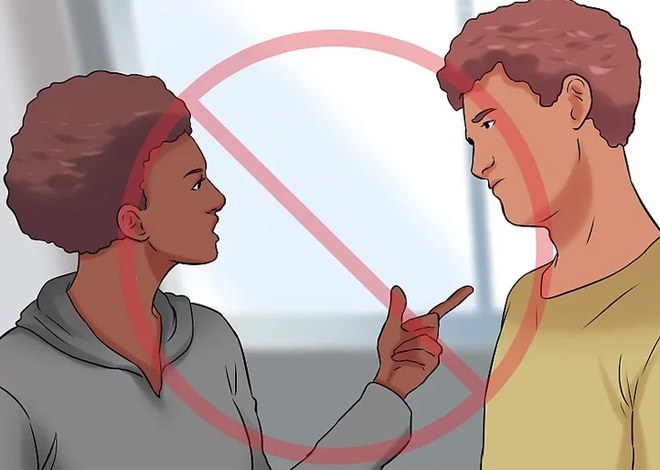Remembering what we have been taught from a young age, we tend to automatically apologize when we have done something wrong. It’s okay to admit and apologize for your mistakes, but it’s not always a good idea to say “I’m sorry.” Knowing when to apologize in that way is a skill. Even in certain cases, silence is a better tactic to keep the peace.
Here are situations when saying “I’m sorry” shouldn’t be used and a more thoughtful way to handle it.
1. If it’s not your fault
If it’s not your fault, don’t apologize. Instead, express the fact that you regret the situation that happened or how the person feels.
We show empathy, don’t blame this. Then move on to questions like “What can we do about this?” or “How can I help you?” It’s better in this case when you work together to solve the problem with the person.
2. When you can make a new commitment
Often “sorry” is not enough because the problem will persist. You need to know your mistakes but show them with your commitment.
Say “Yes, I take full responsibility for that” and explain what factors change and why they are unpredictable. Separate excuses from facts and ask others if there are ways to reduce the problems you’re causing. If the other party does not have an answer, take the initiative to propose, make a commitment and seriously implement it.
3. When You Can Say “Thank You”
You have a meeting and you are late. Instead of saying “Sorry,” try saying “Thank you very much for your patience” or “Thanks for waiting while I sort out the problem.” Instead of saying “Sorry I missed that part,” you could try saying “Thanks for giving me more time to present/execute.” When you use “Thank you” instead of “Sorry,” the message changes from regret, shame, to gratitude.
4. When apologies don’t solve the problem
We all learn more from our mistakes than from what went right. Failing early, dealing with analysis, learning and improvement is the most effective way to help you grow yourself as well as the company.
To be more successful, we must learn to make mistakes effectively. Blaming yourself or asking for mercy is inappropriate, in which case it’s important that you don’t intentionally do something wrong to cause harm.
5. If there’s a better way to apologize

You need a reason to apologize and remember that mistakes are not the end of the world unless you want to. Saying “I’m sorry” often signals the end, indicating that you have no plans to take the next steps to improve the situation or know how to prevent a similar outcome from happening in the future. The wisest and most successful people apologize by clearly spelling out what actions and steps they took to minimize wrongdoing.
6. When you don’t know the exact reason
Apologies must always contain regret. When we apologize but are not sincere, it affects our reputation.
If you did something wrong (wrong), it was just a mistake, you don’t have to apologize. If you have done something wrong (morally), you need to ask yourself why it was wrong, what do you want, would you do it again? If you still feel that you were wrong, apologize and explain why.
7. When you want to be tolerated, not forgiven
Saying “I’m sorry” often stems from regret within you. It is important to understand the source of your regret in order to determine your response in a situation. If you didn’t consult and made a bad decision that affected other people, you should apologize. However, if you’ve tried your best but the results are still bad, maybe you need understanding, tolerance. Compassion and tolerance are essential for any setbacks.
8. When you really do something wrong

When you really did something wrong and want to fix it, there’s no point in just saying “Sorry.” Instead, take responsibility for your mistakes and say, “I was wrong when …” and ask how you can fix them.
9. If your mistake affects the whole company
One thing is for sure, you have to admit your mistake and take responsibility for it. This is one of the important factors to make a company strong. And when your mistakes seriously affect goals, the financial situation of a team member or the entire company, one word “Sorry” is hard to accept.
10. When you really don’t feel guilty
If you don’t feel guilty or don’t regret what you did at all, don’t apologize. Even if someone sees your behavior as wrong or inappropriate and you don’t, instead of apologizing and letting go, ask them how they want you to do it and if so, how will they handle it?
at Blogtuan.info – Source: Eva.vn – Read the original article here




